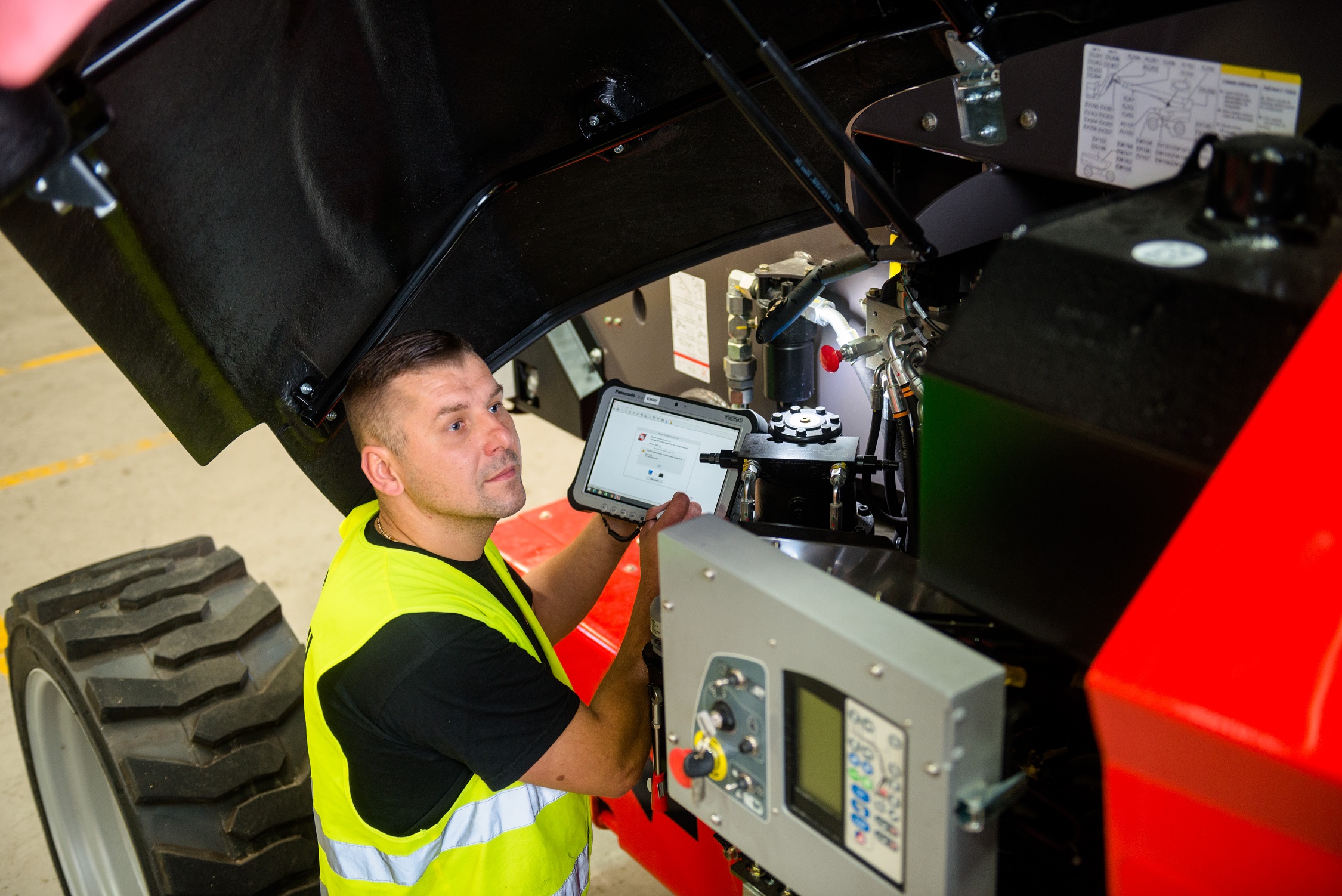
CFTS reveals the 9 things you need to know to stay on the right side of the law…
If you oversee fork lift operations you’ll be familiar with the term ‘Thorough Examination’, but what does it actually mean? Not knowing could come at a heavy cost, according to CFTS, the body that established a UK standard for the Thorough Examination of fork lift trucks.
CFTS Chairman Geoff Martin explains: “Recent changes to legislation mean that, as an employer, you need to understand what it is, why it’s required and, most important of all, what it means in practice.”
To help you keep your operations safe and legal, CFTS has identified the 9 things you need to know about Thorough Examination (but may have been afraid to ask…)
A Thorough Examination is an essential, mandatory check to ensure that your trucks are in safe working order. In simple terms, you can think of a Thorough Examination as being the fork lift truck equivalent of an MOT. It is not the same as any regular checks your trucks may have as part of scheduled service plan.
It is required by law, and covers two different sets of Health and Safety regulation(s): LOLER 98 and PUWER 98. The LOLER and PUWER legislation covers different areas of a truck’s operation, so a truck that passes LOLER 98 could still leave you liable under PUWER 98, and vice versa. This is why a Thorough Examination is paramount. It means you’re completely covered.
The costs for non-compliance are higher than they ever have been. With the introduction of the Fee for Intervention, updates to L117, and increased fines for individuals under the Corporate Manslaughter and Corporate Homicide Act, it’s never been more pressing for managers and supervisors to be fully aware of what’s required and making sure they comply.
At least once every 12 months is stated in legislation, though under LOLER 98 this could be more frequently, depending on how, when, and where the truck is used.
LOLER 98 covers the lifting parts of the truck, as well as lifting accessories. PUWER 98 — which is generally less understood by forklift owners — covers the risks associated with the non-lifting parts of the truck, such as brakes and steering.
CFTS developed a standardised test that covers both PUWER and LOLER so you can be confident your truck is covered under the law
If the truck is owned outright or is on a long-term hire of 12-months or more then the responsibility is on the truck’s owner or leaser/user. When a truck is hired for less than a year, the rental company has the responsibility of arranging the Thorough Examination.
However, whether you hire a truck for a day or a year, you should insist that a copy of the truck’s Report of Thorough Examination is included with the rental documentation. That way you can be satisfied that your employees are operating a truck that is safe and legal.
Importantly, a fork lift should also have a valid Thorough Examination report whenever it changes hands: either temporarily or permanently.
Non-compliance with LOLER 98 and PUWER 98 comes at a heavy cost. You run the risk of prosecution and financial penalties, as well as putting your workforce at risk of serious injury – even death.
The FLTA (Fork Lift Truck Association) and BITA (British Industrial Truck Association), the UK’s leading authorities, came together, in consultation with the HSE, to establish CFTS: delivering a safe, national, quality-controlled process for Thorough Examination.
Over the last 12 years, the number of CFTS-accredited companies in the national network has passed 450 and continues to grow. You can identify a CFTS-accredited company by the distinctive kitemark on their literature, certification, reports, and truck stickers (as only companies officially accredited are allowed to use this mark).
The CFTS Thorough Examination standard has been developed to cover the widest range of lift trucks, including counterbalance trucks, telehandlers, rough terrain trucks, man-up models, and reach trucks.
A recent initiative introduced a rigorous 34-point Thorough Examination quality-controlled procedure specifically for attachments. The new criteria includes separate inspections of the security of attachment mounts, winch and chain brake tests, chain and sling wear checks, damage inspections, checks on wear plates and warning signs, along with an entirely new checklists to cover platforms, safety cages and tail lifts.
With a CFTS-accredited Thorough Examination check you can be assured that your Thorough Examination check will be of the highest standard, as few outside of the industry can claim such authority and familiarity with the procedure as a combination of the FLTA and BITA working with the HSE.
As legislation changes, so will we, so you can always be confident that a CFTS-accredited Thorough Examination will ensure you’re thoroughly covered, and so are your trucks.
To find out more about any aspect of Thorough Examination – including finding CFTS-accredited companies in your area, visit www.thoroughexamination.org or call 01344 623 800.